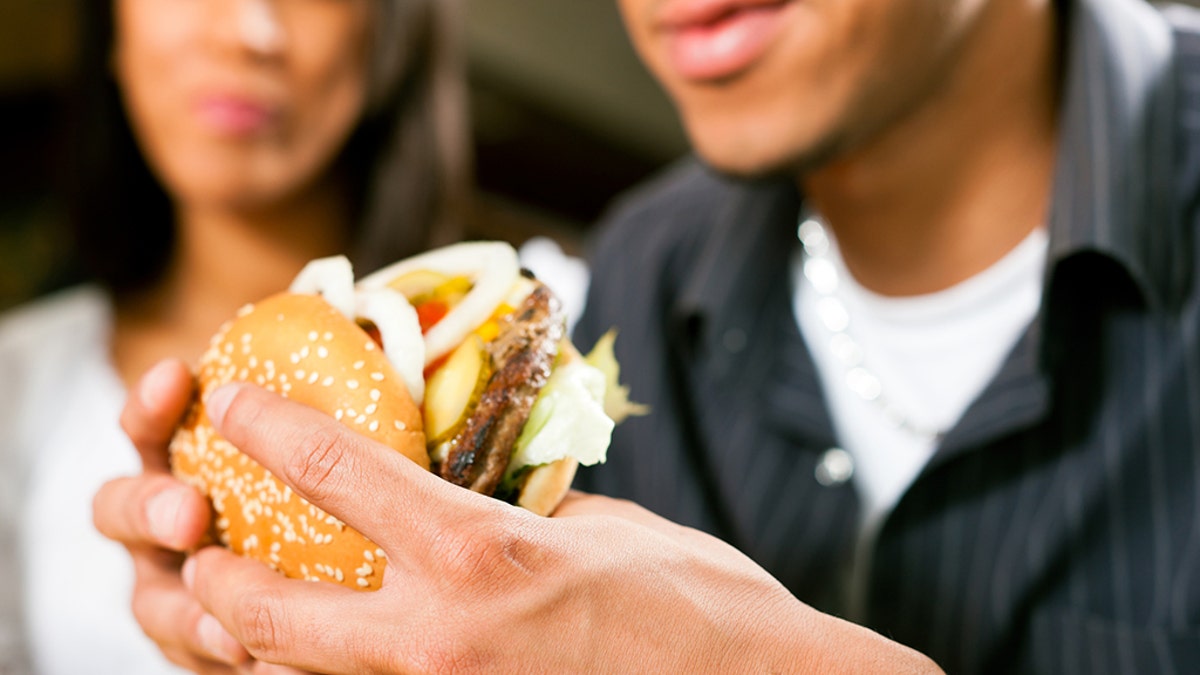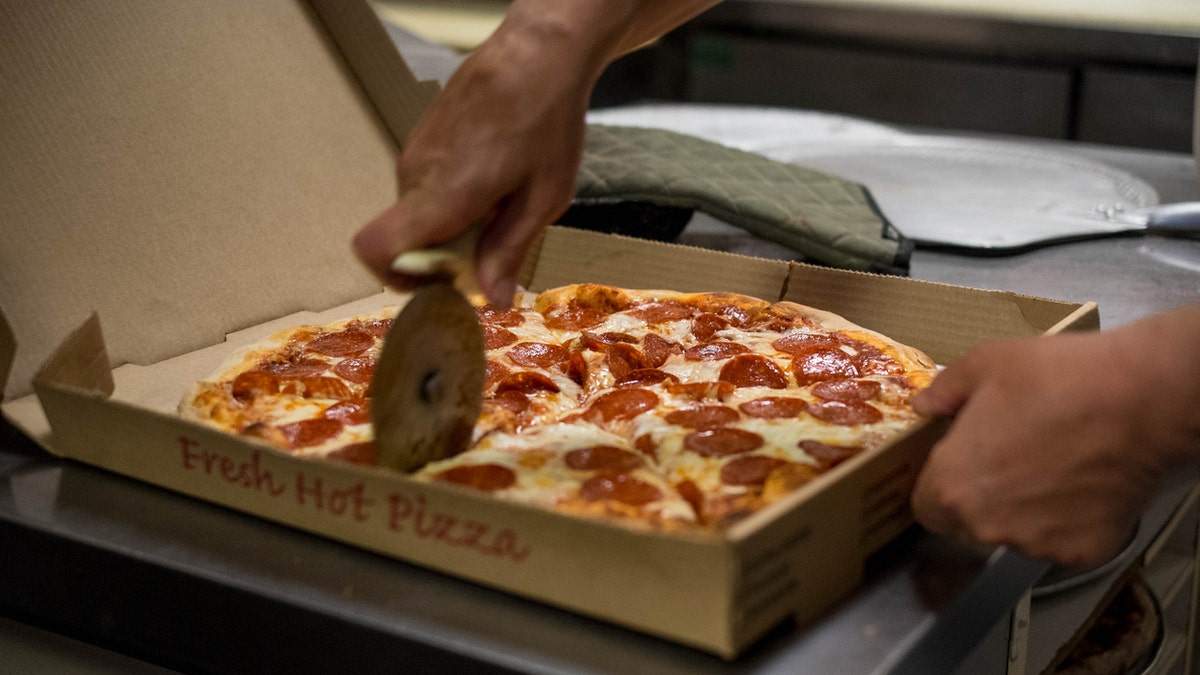
Nearly 25 percent of survey participants claim a partner veered them off their diet plan. (iStock)
One in four Americans has failed a diet — because their partner led them astray, according to new research.
A survey examining how and why our attempts to eat healthily and lose weight often fail found a surprisingly high number of diets come undone because of a partner leading us into temptation.
From eating irresistible treats and snacks in front of us to ordering takeout or willing us to have drinks, responses showed 24 percent of people blame their partner for derailing a diet.
The results emerged from a survey conducted by OnePoll in conjunction with Isopure, which looked into the dieting successes and failures of 2,000 Americans.
PICS: WOMAN SEEN DOING YOGA ON EDGE OF CRUMBLING CLIFF
With people mindful of their summer bodies, responses showed top reasons people fail diets are lack of time to meal plan, having treats around the holidays, social gatherings, treating themselves, and stress around work.

Also, people don't normally fight for the first bite of salad. (iStock)
Even though many reasons behind diet failures are legitimate, there are some that appear to be simply based on temptation.
Responses showed that 38 percent of survey respondents failed on a diet because they couldn’t resist a delicious treat.
Another 32 percent claim that healthy food is simply too expensive, and so their bank account causes them to reach for a less-than-healthy snack.
Reaching for a feel-good-food seems to be a common way for survey respondents — 42 percent of them — to deal with their stress.
With all these diet fails, what foods are people choosing to indulge in? Pizza tops the list, followed by ice cream, chips and chocolate.

We just can't quit you, pizza. (iStock)
Cookies came in at number five followed by cake, burgers, candy, and cheese.
VETERINARIAN SHARES ADVICE FOR KEEPING PETS HEALTHY, AND NOT TOO HUSKY, THIS SUMMER
“A diet plan is only good if you can realistically adhere to it, so it’s key to structure the plan around your specific lifestyle and to build permissive indulgent moments into the plan, like a weekly programmed cheat meal on Saturday night when you know you’ll be around friends and family” says Jonathan Thompson, the general manager of Isopure. (Saturday is the day that a diet is most likely to come to a crashing halt for survey participants, SWNS reported.)
“Having a diet plan that accounts for your particular social, work and exercise cadence turns a potential diet-derailing moment into a positive and programmed part of your diet that you can actually look forward to, and greatly multiplies your chances of staying on plan and achieving your goals.”
After breaking a diet, many also admit to feeling disappointed, frustrated, upset, annoyed and angry. As a result, it’s no wonder that two in five survey respondents get fed up with clothes that no longer fit or look good.
But it’s more than simply sticking to a diet that contributes to a healthy lifestyle — sleep, fitness and hydration are also important.
With sleep being such an integral part of a healthy lifestyle — the average American is struggling to get the proper amount of sleep a night- with six hours being the average.
And it’s not just sleep that continues to halt Americans’ attempts at getting healthy. 34 percent of survey respondents rarely or never even exercise at all.
Poor food choices, lack of sleep, and skipping the gym are one thing, but 27 percent of survey respondents don’t even know how much water they need to consume in a day to stay properly hydrated.

Most survey respondents knew hydration was important, but many said they still failed to drink enough water. (iStock)
And even of the people that are aware, 16 percent report to not being able to meet their daily water intake needs.
FOLLOW US ON FACEBOOK FOR MORE FOX LIFESTYLE NEWS
“When you dial in the synergistic pillars of nutrition, exercise, sleep and hydration great things happen. Think of each as the leg of the table. Remove even one leg and things can get out of balance,” said Thompson.
Unfortunately, after failing a diet, two in five survey respondents lack the motivation to pursue a healthy lifestyle.








































